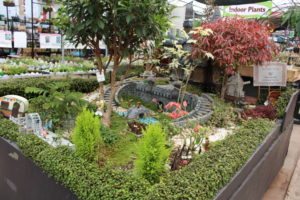Update from The Hill
The U.S. Congress will be back at work as February arrives but with a few new priorities. For Republicans, the growing fallout in the wake of the Abramoff lobbying scandal has caused a House leadership shakeup, with former majority leader Tom DeLay (R-TX) deciding to step down permanently. Roy Blunt (R-MO), who has been serving as acting majority leader, faces a challenge from Reps. John Boehner (R-OH) and John Shadegg (R-AZ). While Boehner is well known and supported by business interests as a result of his chairing the Education and Workforce Committee, Shadegg appears to be gaining momentum among conservatives who believe a major change is needed.
The shakeup may not be over either. In addition to DeLay, Rep. Bob Ney (R-OH) has temporarily stepped down from a leadership post while he is investigated. There may be further surprises in store as the scandal probe widens. Expect both Republicans and Democrats to advance new ethics rules as an early priority. Republicans especially want to put the issue behind them quickly, as all 435 members of the House of Representatives and a third of the U.S. Senate are up for election. Meanwhile, where are some of the green industry’s legislative priorities?
Immigration Reform
America’s immigration system has been dysfunctional for decades, and the status quo for employers has become untenable. In mid-December the House of Representatives passed the most anti-employer legislation we’ve seen in many years. It is flawed for what it would do and flawed for what it fails to do. In short, it would ratchet up employer responsibilities for verifying the status of not only new but current workers and drastically increase penalties for violations. Employers could face “alien smuggling and harboring” charges, and it would do nothing to ensure access to a legal labor force.
Fortunately, the Senate is not likely to pass a bill anything like the House version. Still, with anti-immigrant sentiment running high, and many in Congress uncomfortable articulating a vision on how to wisely address the problem, a bad bill could emerge from the Senate, too. If the Senate passes any legislation, differences in the House and Senate versions would have to be reconciled by a conference committee. The end product would face a single up or down vote in each chamber.
American Nursery and Land-scape Association (ANLA) chairs the agricultural coalition and is a leader in the general business coalition working on the immigration reform issue. Our solution would overhaul and streamline the existing agricultural and service industry guest worker programs and provide a realistic opportunity for trusted and experienced workers who earn proper immigration status over time. Earned legal status is different from “amnesty,” which is an unconditional forgiveness.
While the anti-immigrant forces try to frame the debate around “greedy employers wanting cheap labor,” the truth is that it’s a simple numbers game. The bubble of baby boomers is beginning to retire, and the younger workforce coming behind them is both shrinking and better educated. A growing economy will demand workers that simply won’t be there without reforms.
Many garden retailers and suppliers see the immigration crisis as the growers’ problem, not theirs. Á Enforcement-only approaches would devastate most growers, yet the effects would also ripple through the supply chain in both directions. Pot, tag and label manufacturers, equipment dealers and other suppliers would see disruption and decline in demand for their products.
Many growers are uncomfortable speaking out publicly on this issue for fear of being targeted. Others are taking the risk because their businesses depend on a solution. Suppliers and customers can and should speak out. Send a letter to Congress telling the story. You can visit www.anla.org/lighthouse and enter the “Legislative Action” section to view current alerts and sample letters you can personalize.
Estate Tax
Senate Republicans are planning again to bring an estate tax repeal bill to the floor this year. However, repeal advocates are divided over the best strategy for a permanent solution to the inheritance tax. On one side are “purists” who believe full repeal is the only way to go. On the other are “pragmatists” who believe two-thirds of a loaf beats crumbs.
With the federal budget strained to the limit by military actions and Katrina relief, 2006 may be a tough year to get legs under any proposal. Still, Sen. Jon Kyl (R-AZ), a leader on the issue, is said to be reaching out to a few Democrats in an effort to revive talks on a permanent compromise. Increasing the amount of an estate shielded from the tax to $10 million would be a major improvement for almost all family businesses in the green industry.
Health Care
It’s hard to imagine that Congress would manage to do anything significant on health care during the election year. Yet, efforts are continuing to pass the “association health plan” legislation. This bill would make it easier for trade associations to offer their members more cost-effective insurance products. It is not the whole solution to this nightmarish problem, but a start. It’s too early to call the odds for action this year.
Lobbying and Ethics
The Abramoff scandal has only eroded the public’s largely negative perception of the “influence business” in Washington, D.C. For those of us whose job it is to represent the green industry, the simple fact is that “Abramoff’s world is not our world.” The Abramoff case is an extreme one in every respect, and the ongoing investigation will likely find major illegalities and ethics problems.
For perspective, there are fundamental differences between a “hired gun” who is paid to get something solely based on who they know and staff lobbyists whose job it is to work with volunteer association leaders to develop sound policy and articulate that policy to federal decision makers. All this is done completely in the context of the principles and integrity of the organization involved.
So don’t make the mistake of “opting out” of involvement in the political process on the excuse that an unscrupulous person broke the law and faces punishment. Politics is a contact sport, and by its very nature our political process yields winners and losers. The surest way to lose is not even to be on the field. The surest way to win is through integrity and steadfast commitment.

















 Videos
Videos





